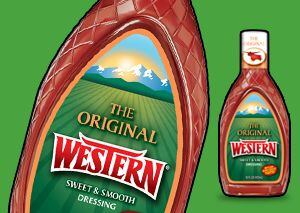The deal - which is subject to regulatory approval and is expected to close in late Q3 or early Q4 2013 - does not include Unilever’s facility in Independence, Missouri, at which Wish-Bone and Western brands are currently produced, said Unilever.
“The factory will continue to manufacture for Pinnacle Foods under a third-party agreement.”
Kees Kruythoff, president of Unilever North America, said: “We believe that the potential of both the Wish-Bone and Western brands can now be more fully realized with Pinnacle Foods.”
The annual turnover for Wish-Bone and Western is approximately $190m.

Wish-Bone is #1 in Italian dressings and the #3 dressings brand in the US, said Pinnacle, which plans to invest $40-50m to consolidate production into an existing facility: “Synergy realization will be phased over time, beginning in 2014 and ramping up through 2015, as manufacturing is transitioned to Pinnacle.”
It added: “The brands have attractive margins and high free cash flow conversion and are expected to immediately enhance Pinnacle margins. Cost synergies are expected to be substantial.”
Based in Parsippany, New Jersey, Pinnacle Foods is a leader in the shelf stable and frozen foods segments with a stable of brands including Duncan Hines baking mixes and frostings, Vlasic shelf-stable pickles, Mrs. Butterworth's and Log Cabin table syrups, Armour canned meats, Open Pit BBQ sauces, Freshlike frozen vegetables, Birds Eye Voila! frozen meals, Hungry-Man frozen dinners and entrees, and Aunt Jemima frozen breakfasts.
Unilever: 'We have disposed of many of our businesses around the peripheries'
Speaking on the firm's Q2 earnings call last month, Unilever CEO Paul Polman said that the company's food footprint is "more skewed towards emerging markets now and we have disposed of many of our businesses around the peripheries where, as a result, our sales are now concentrated on fewer, bigger brands.
"For example, the emerging markets are now close to 40% of our sales, up from just 20% not so long ago. And nearly 2/3 of our turnover is now in our EUR 4 billion food brands as a result of this aggressive divestiture of these nonstrategic assets. These are brands with strong equities and broad relevance."
